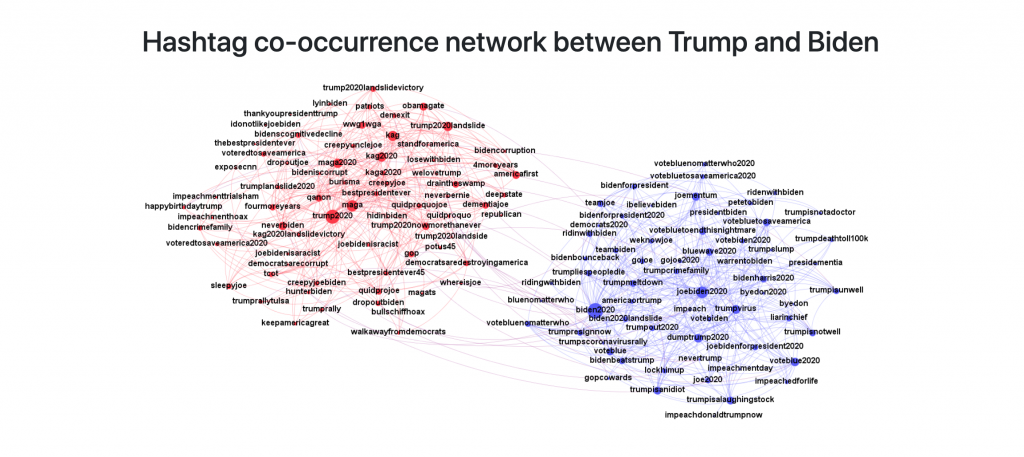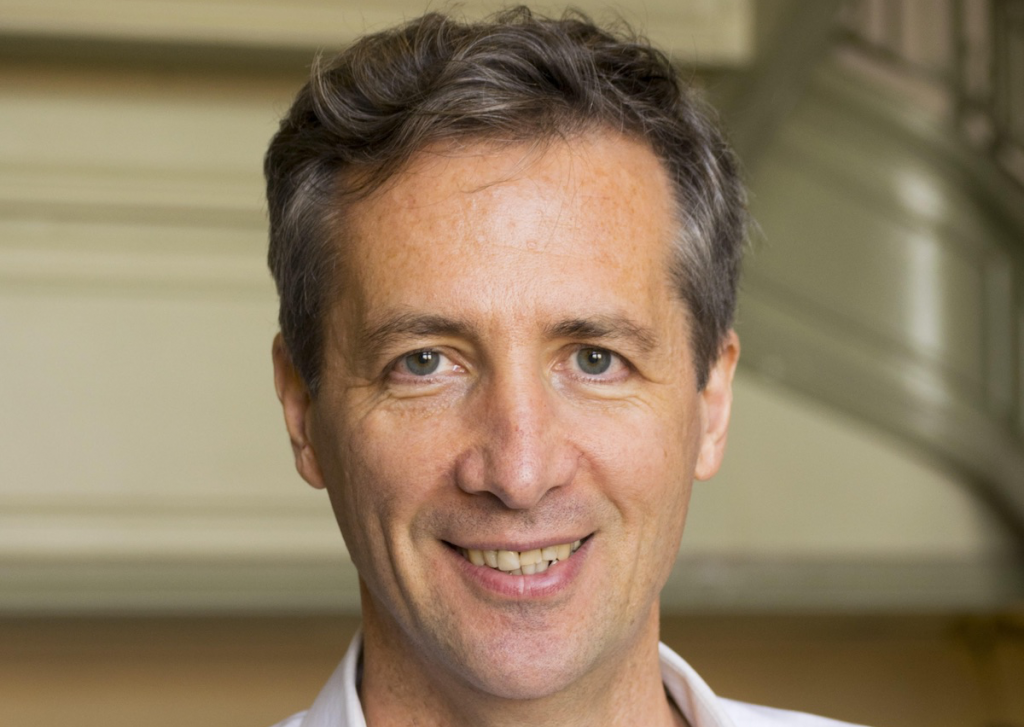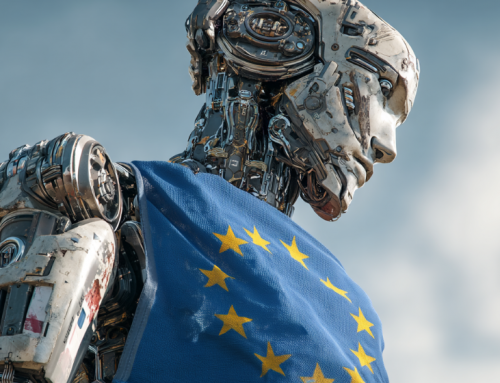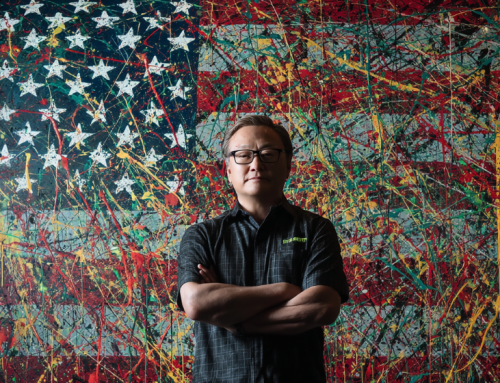
A hashtag graphic of one of several factors used in the prediction showed that Twitter users spoke positively of Biden more than Trump. Source: Kcore Analytics)
Twitter Scans May Not Be 100% Reliable, but Heavy Odds Are in Biden’s Favor to Win
According to an AI program that scanned Twitter posts, conducted by Dr. Hernan Makse, a statistical physicist at the City University of New York, former U.S. Vice President Joe Biden is favored to win the presidential race by a large margin.

Hernan Makse, Professor of Physics of City College of New York in New York City, said AI predicts a Biden win. Source: CUNY)
Described as an “unprecedented” AI machine learning algorithm, Kcore Analytics predicted that Biden has wide-ranging support to win in Tuesday’s U.S. Presidential election. He is also leading incumbent Donald Trump in the national polls.
Makse explains that the algorithm scanned 1 billion tweets before crunching the numbers and coming to a conclusion.
“We trained a neural network, using artificial intelligence to predict the opinion of every user on social media,” Makse told the Express newspaper, based in London. “And with that, we predict the elections after doing a very heavy statistical analysis on the results.”
Makse operates the Complex Networks and Data Science Lab at the Levich Institute and Department of Physics of City College of New York in New York City. The lab explores the theoretical understanding of Complex Systems from a Statistical Physics viewpoint. The researchers seek to develop new emergent laws for complex systems, ranging from brain networks and biological networks to social systems. Using a unified theoretical approach, they apply concepts from statistical mechanics, network and optimization theory, machine learning, and big-data science developed in studies of disordered systems in physics.
Among the projects the Lab has completed include a contact tracing program for the Brazilian government and has produced several papers on how the brain functions, including how the brain transitions from conscious to subliminal perception to how their research uses percolation models to describe the diffusion of information and its impact on people’s opinions. Makse also wrote about how AI predicted the recent Argentinian Election.
Makse said the models are not ready for prime time in calling an election, but they are a valid indicator of much of a segment of public opinion, despite their weaknesses.
“One is this is called a sampling bias – essentially, even if you take 20 million people across the entire USA, your sampling is always biased – so our bias is the people who actually use Twitter.”
Another issue is predicting turn-out, which is also a struggle for pollsters, he noted.
“The second bias is the voter turn-out because we do not know how many people are going to vote. “So then we are trying to control for the two variables, it is essentially the most important feature of any model.”
He said other variables could play a role, too, because Twitter users tend to be city dwellers, but if rural voters turn out in greater numbers than in the past, that could have an impact in Trump’s favor.
read more at express.co.uk







Leave A Comment